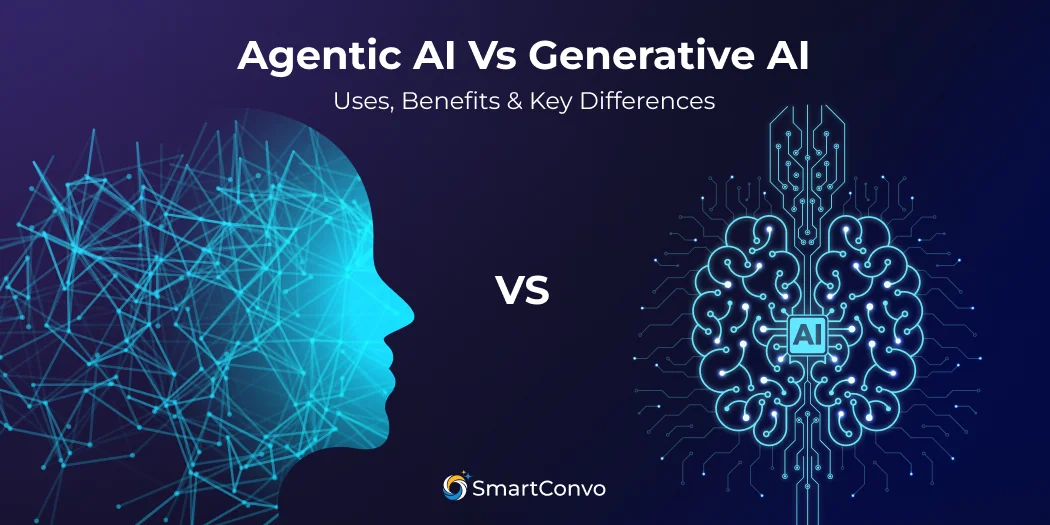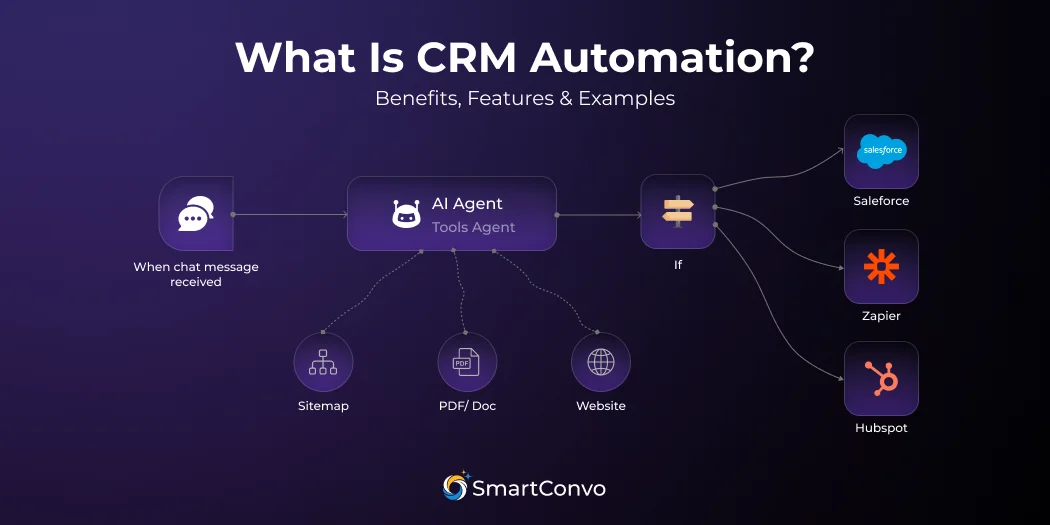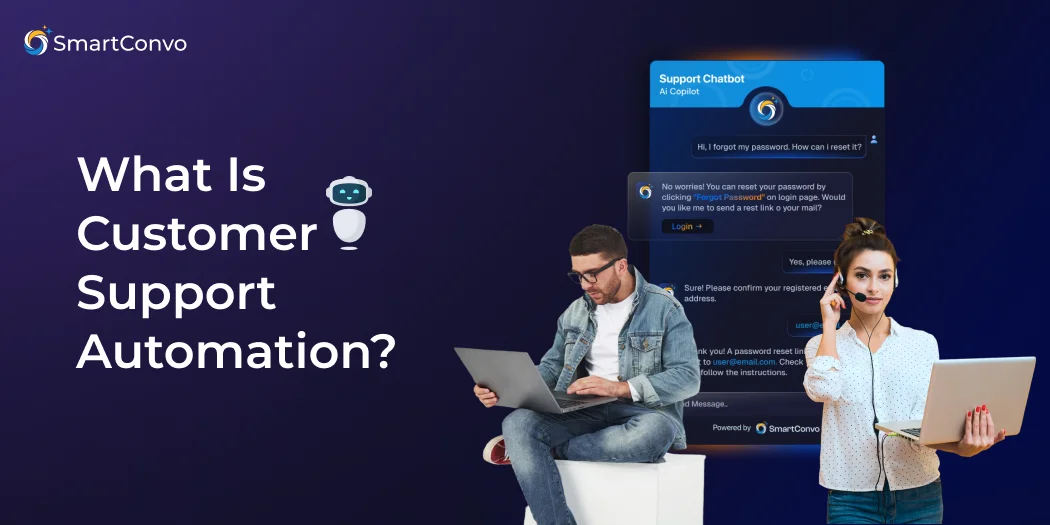The rise of AI-powered innovations is reshaping industries worldwide, and Large Language Model (LLM) chatbots are at the forefront of this transformation. From enhancing customer experiences to streamlining workflows, LLM powered chatbots are proving to be invaluable assets for businesses of all sizes, particularly for those exploring the potential of AI for business.
But how exactly do these chatbots work? And in which industries are they making the most impact? This blog explores the chatbot use cases across various sectors, demonstrating how organizations can leverage this technology for efficiency, engagement, and innovation.
What Is an LLM Chatbot?
Large Language Models (LLMs) like OpenAI’s GPT series or Google Bard represent advanced AI systems trained on massive datasets to understand and generate human-like text. These models are designed to perform complex language processing tasks—such as answering queries, generating content, summarizing information, and contextual decision-making.
LLM chatbots are conversational AI tools powered by these large language models, capable of mimicking natural human conversation. Unlike traditional rule-based chatbots that struggle with complex queries, LLM based chatbots leverage the extensive knowledge in AI systems to handle diverse, unpredictable scenarios seamlessly.
This ability to interact at a human level makes LLM-based chatbot solutions highly adaptable and scalable, providing solutions that fit several business sectors.
Where Can You Apply Large Language Models?
LLM chatbots hold relevance in industries that demand high levels of customer interaction, knowledge management, and task automation. Their versatility allows them to be applied in dynamic environments requiring efficiency and precision, including but not limited to healthcare, banking, HR, education, and marketing.
From improving HR case management systems to optimizing a helpdesk knowledge base, the opportunities to use conversational AI chatbots are vast. The crucial factor is determining which specific chatbot use cases align with your business goals and operational challenges.
8 Use Cases for LLM-Based Chatbots in Various Industries

Healthcare
The healthcare sector has increasingly turned to AI for better patient experiences and operational efficiency. Here, the best LLM for chatbot solutions play a pivotal role by offering features like patient triage, appointment scheduling, and even condition-specific advice based on documented symptoms.
For instance, a healthcare facility might use chatbot-driven Document AI for Knowledge Management to centralize patient data and provide caregivers with fast, reliable access to information. Patient inquiries can also be addressed using conversational AI, empowering individuals to access accurate and personalized responses at any hour.
Key Benefits:
- 24/7 patient support
- Improved diagnosis recommendations
- Secure handling of medical data
Finance
Banks and financial institutions are using LLM-based chatbots to offer tailored customer experiences. These chatbots can answer complex questions about loans, mortgages, and investments while also providing advice based on user financial profiles.
For instance, a chatbot in the finance sector may serve as an AI Sales Chatbot, offering curated financial products to customers after analyzing their transaction history and spending habits. The ability to deliver instant insights and easily process requests like balance inquiries makes LLM bots indispensable tools for financial services.
Key Benefits:
- Enhanced customer experience
- Streamlined financial consultations
- Reduction in operational costs
Automotive
The automotive industry can use LLM based solutions to redefine customer experience and internal processes. From intelligent virtual assistants integrated into vehicles to help drivers, to chatbots collecting customer feedback for AI for Business solutions, there is a wide scope for application.
For dealerships, chatbots can answer questions about models, financing options, and even schedule test drives. Additionally, they can provide proactive maintenance reminders and diagnostic insights.
Key Benefits:
- Connected car experiences
- Predictive maintenance notifications
- Simplified customer support
Education
Educational institutions are at the forefront of interactive learning, where LLM chatbots facilitate student guidance, administrative assistance, and customized learning paths. These chatbots can act as personalized tutors, delivering knowledge tailored to individual student needs.
By integrating with a Knowledge Base for HR systems in universities, administrators can also automate inquiry responses, freeing up valuable resources for other tasks.
Key Benefits:
- Better student engagement
- Automated academic and administrative functions
- Customized learning experiences
Marketing and Advertising
Marketers are consistently looking for scalable ways to deliver personalization, and LLM chatbots meet this need across customer engagement and ad campaign design. Whether it’s directing leads to relevant landing pages or writing ad copy using Generative AI, these chatbots power interactive marketing strategies that compel action.
For example, chatbots can generate real-time answers to specific customer questions, encouraging higher engagement rates and improving conversion paths.
Key Benefits:
- Improved personalized marketing campaigns
- Immediate customer interaction analysis
- Reduced manual input for ad testing
Customer Service
Customer service is one of the most impactful industries impacted by the benefits of AI chatbots. LLM chat bots improve query response times and can handle a vast array of inquiries simultaneously, providing 24/7 service without additional support staff.
These chatbots can also integrate into enterprise tools like Helpdesk Knowledge Bases, helping agents resolve complex issues faster or redirecting customers to more appropriate resources.
Key Benefits:
- Increased customer satisfaction
- Scalable, cost-effective service
- Reduced workload for human agents
Media and Entertainment
LLM-based chatbots bring interactivity to the entertainment industry by rewriting how users consume information. They can assist with personalized content recommendations, manage streaming subscriptions, or even generate content ideas for creative projects.
For example, media companies can integrate Conversational AI in Different Industries to offer AI-generated scene summaries or custom playlists catering to the user’s preferences.
Key Benefits:
- Drive better user engagement
- Enable content discovery
- Manage subscriptions seamlessly
Human Resources
HR teams are leveraging LLM chatbots to tackle tasks like recruitment, employee onboarding, and boosting engagement. An AI Chatbot for HR Management can speed up hiring by scanning resumes, while bots also help streamline workflows for HR Case Management Systems by automating query resolution.
Furthermore, HR chatbot play a significant role in fostering productivity and satisfaction by acting as HR Chatbots for Employee Engagement, ensuring team members feel heard and valued.
Key Benefits:
- Faster and bias-free recruitment processes
- Enhanced employee engagement
- Automation of repetitive tasks
What Are the Challenges for LLM Implementation?

While the potential of LLM-based chatbots is tremendous, businesses should prepare to address the following challenges during implementation:
- Data Privacy Concerns: Industries like healthcare and finance often handle sensitive information. Ensuring secure data handling is crucial.
- Model Bias: Since LLMs learn from existing datasets, they may inherit biases that need constant monitoring and correction.
- High Computational Costs: Training and deploying large-scale LLMs can require significant resources.
Building a robust system to mitigate these challenges ensures that the benefits of AI chatbots for HR management and other domains can be fully realized.
How to Implement Large Language Models (LLMs)
Follow these steps to successfully implement LLMs in your organization:
- Identify Objectives: Define the specific goals of the LLM chatbot—whether to enhance customer experience, automate tasks, or improve engagement.
- Invest in Training Data: Use quality datasets to train the model, ensuring it understands domain-specific terminology.
- Choose the Right Technology: Opt for tools that align with your organization’s needs—whether that’s helpdesk knowledge bases or sales chatbot.
- Monitor and Update: Continuously analyze the chatbot’s performance and update it to suit changing business requirements.
By following these steps, organizations can use AI in HR, marketing, or any other field strategically, unlocking the chatbot’s full potential.
How Can Smartconvo Help You with the Best LLM-Based Chatbots?
At Smartconvo, we understand the power of AI and its potential to transform industries. We offer comprehensive solutions for creating, testing, and deploying LLM-based chatbots.
Here’s why customers trust Smartconvo:
- Industry Expertise across healthcare, finance, and marketing
- User-friendly chatbot LLM platforms with minimal learning curve.
- Fully customizable solutions to fit your business’s unique goals
Get in touch today to discuss how Smartconvo can revolutionize your approach to automation and customer engagement.
No Credit Card Required | 14 days Free Trial
Build Your Chatbot
Conclusion
LLM-based chatbots are transforming how businesses interact with their customers and employees, making multitasking seamless and improving productivity. Whether you operate in finance or education, the benefits of using Conversational AI Chatbots are clear—they offer personalization, efficiency, and the ability to adapt to dynamic business needs.
If you’re considering adopting these technologies, now’s the perfect time. Start small, stay consistent, and watch the magic unfold as you leverage the power of conversational AI.
Frequently Asked Questions (FAQ)
LLM chatbots are powered by advanced AI, enabling them to understand context, provide nuanced responses, and handle complex tasks that traditional rule-based bots cannot.
Yes, but businesses need to implement strong data privacy measures, especially when operating in industries like healthcare or finance.
Costs vary depending on the scale, features, and industry requirements, but the investment often leads to significant ROI through increased efficiency and customer satisfaction.
While nearly every industry can benefit, sectors like healthcare, finance, HR, and customer service see particularly significant transformations.
Yes! With scalable solutions, small businesses can enhance their services and engagement without requiring extensive resources.













